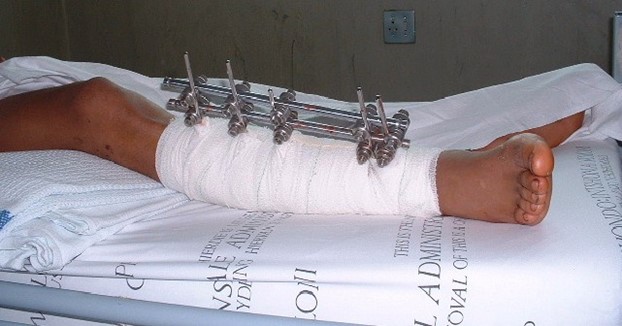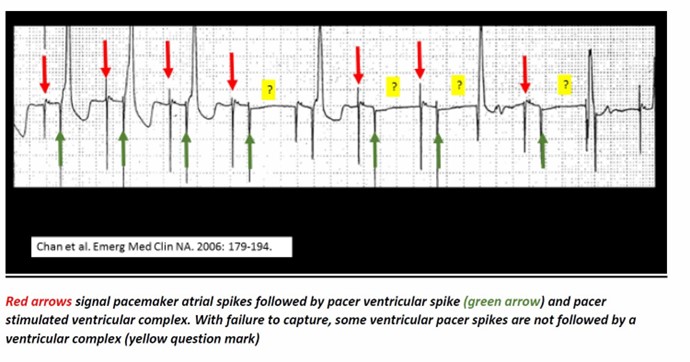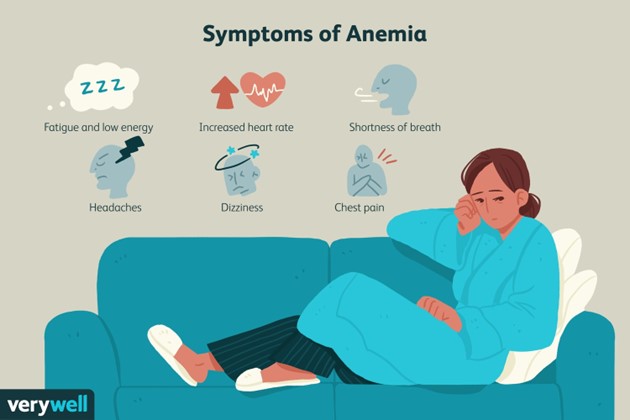A nurse is caring for a client who has just returned from surgery with an external fixator to the left tibia.
Which of the following assessment findings requires immediate intervention by the nurse?
The client's capillary refill in the left toe is 6 seconds.
The client reports a pain level of 7 on a scale from 0 to 10 at the operative site.
The client has an oral temperature of 38.3° C (100.9° F).
The client has 100 mL of blood in the closed-suction drain.
The Correct Answer is A
“The client’s capillary refill in the left toe is 6 seconds.” Capillary refill time is the time it takes for blood to return to the capillaries after pressure has been applied to the skin.

A normal capillary refill time is less than 2 seconds.
A capillary refill time of 6 seconds indicates poor blood flow to the left toe and requires immediate intervention by the nurse.
Choice B is not the correct answer because while a pain level of 7 on a scale from 0 to 10 at the operative site is concerning, it does not require immediate intervention by the nurse.
Choice C is not the correct answer because an oral temperature of 38.3° C (100.9° F) is only slightly elevated and does not require immediate intervention by the nurse.
Choice D is not the correct answer because while 100 mL of blood in a closed-suction drain may be concerning, it does not necessarily require immediate intervention by the nurse.
Nursing Test Bank
Naxlex Comprehensive Predictor Exams
Related Questions
Correct Answer is D
Explanation

A pacemaker sends electrical signals to the heart to regulate the heartbeat.
On an electrocardiogram (ECG), these signals appear as small spikes followed by a QRS complex, which represents the contraction of the ventricles.
Choice A, A regular sinus rhythm, is not the correct answer because a regular sinus rhythm is a normal heart rhythm that originates from the sinoatrial (SA) node and does not involve a pacemaker.
Choice B, A chaotic, irregular rhythm, is not the correct answer because a pacemaker is designed to regulate the heartbeat and prevent chaotic or irregular rhythms.
Choice C, the Absence of any electrical activity, is not the correct answer because a pacemaker sends electrical signals to the heart to regulate its activity.
Correct Answer is A
Explanation
This statement indicates an understanding of the teaching because headache is a common symptom of anemia.
 Choice B is incorrect because bradycardia (slow heart rate) is not a common symptom of anemia.
Choice B is incorrect because bradycardia (slow heart rate) is not a common symptom of anemia.
Instead, anemia can cause irregular heartbeats or a fast heartbeat.
Choice Dis incorrect because flushed skin color is not a common symptom of anemia.
Instead, anemia can cause pale or yellowish skin 1.
Choice Cis incorrect because heat intolerance is not a common symptom of anemia.
Whether you are a student looking to ace your exams or a practicing nurse seeking to enhance your expertise , our nursing education contents will empower you with the confidence and competence to make a difference in the lives of patients and become a respected leader in the healthcare field.
Visit Naxlex, invest in your future and unlock endless possibilities with our unparalleled nursing education contents today
Report Wrong Answer on the Current Question
Do you disagree with the answer? If yes, what is your expected answer? Explain.
Kindly be descriptive with the issue you are facing.
